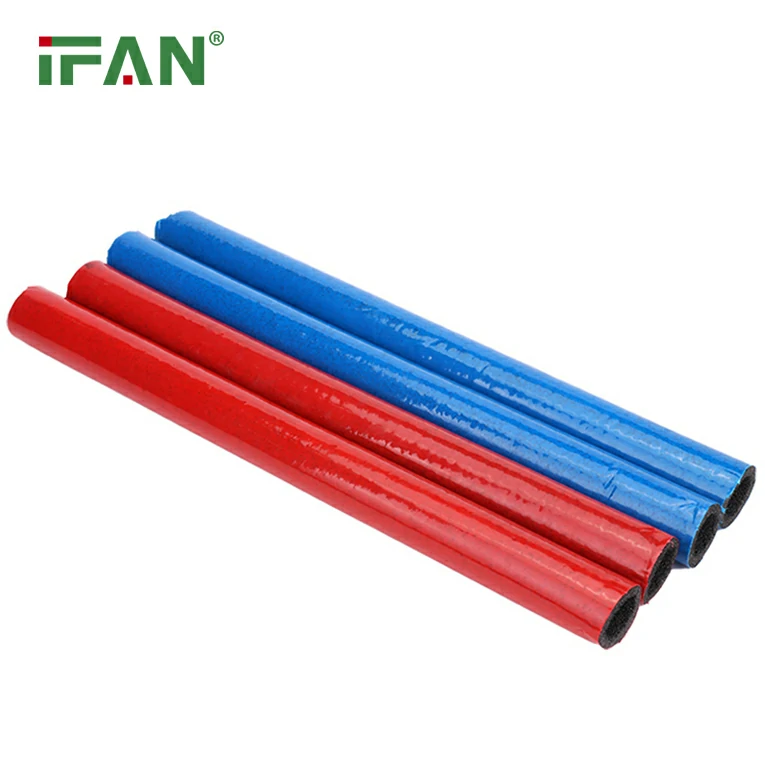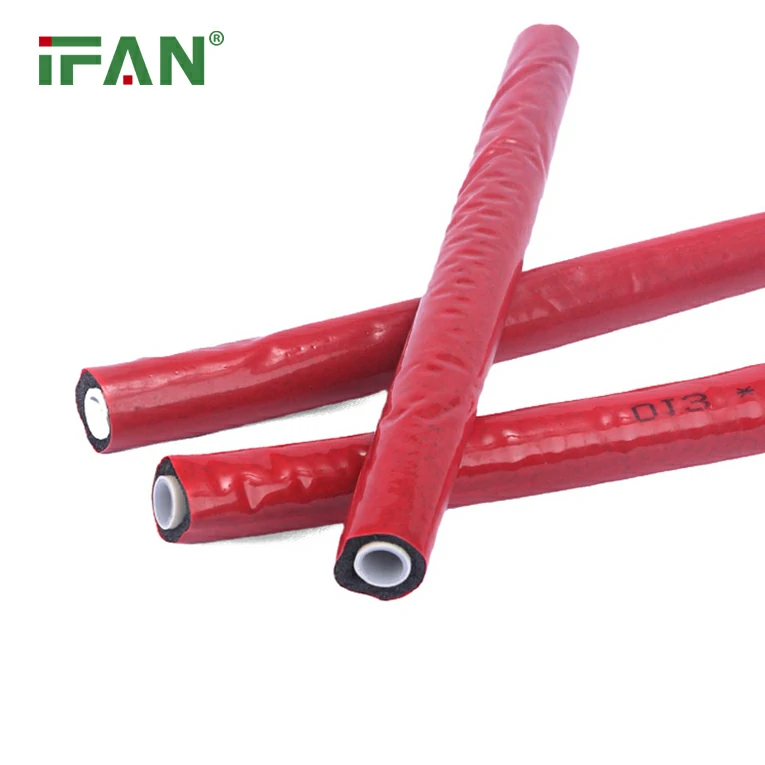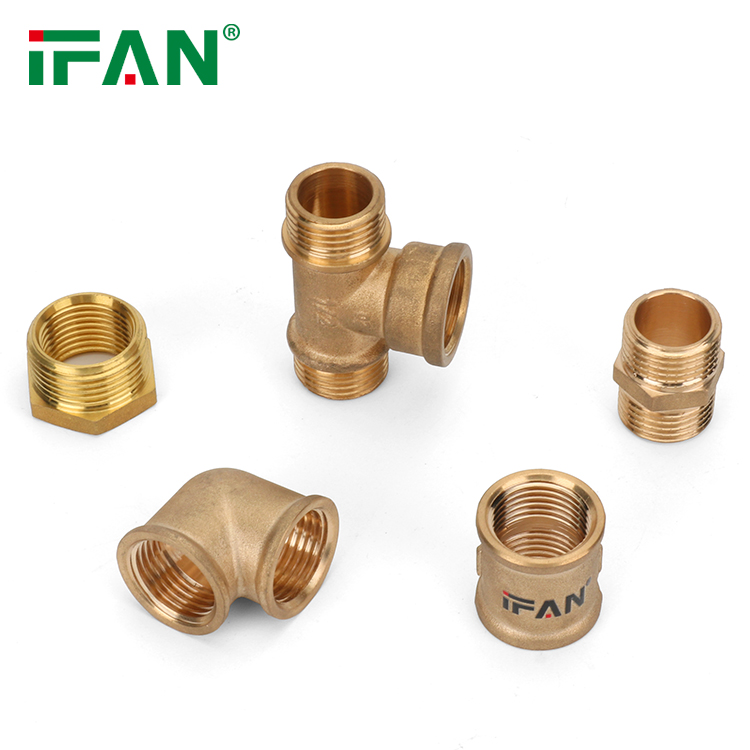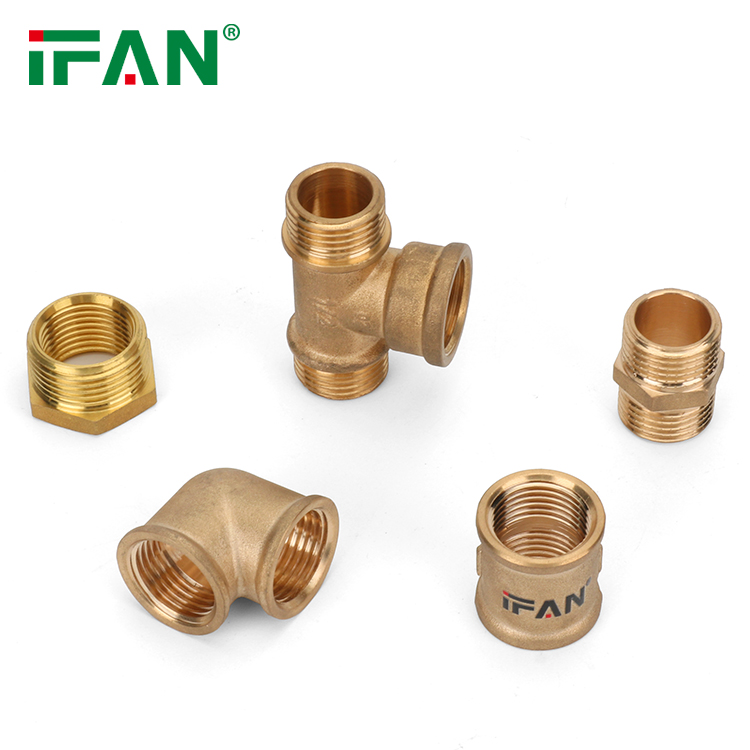IFAN factory 30+ years manufacture experience support color /size customization support free sample.Welcome to consult for catalog and free samples.This is our Facebook Website:www.facebook.com,Click to watch IFAN’s product video.Compared with Tomex products, our IFAN products from quality to price are your best choice, welcome to buy!
Brass fittings are essential components in many piping systems, from plumbing to industrial applications. Made from an alloy of copper and zinc, brass fittings offer remarkable durability, corrosion resistance, and strength. These characteristics make them ideal for creating long-lasting, leak-free connections in various systems. This article explores how brass fittings contribute to the longevity and efficiency of piping systems, and why they are often preferred in high-demand environments.
What Are Brass Fittings?
Brass fittings are components used to connect two or more pipes together in a system. They are made from brass, an alloy primarily consisting of copper and zinc. Brass offers several advantages over other materials like steel or plastic, such as excellent corrosion resistance, strength, and ease of use. Brass fittings are commonly used in plumbing systems, heating and cooling systems, gas lines, and industrial piping systems.
The Role of Brass Fittings in Long-Lasting Piping Systems
1. Durability and Strength
One of the key reasons brass fittings contribute to long-lasting piping systems is their inherent durability. Brass is a strong and resilient material that can withstand pressure, temperature fluctuations, and physical stress. These fittings are highly resistant to wear and tear, ensuring that they maintain their integrity over time. Whether used in residential plumbing or industrial applications, brass fittings can handle the constant pressure from water, gas, or other fluids without cracking or breaking.
Unlike plastic fittings, which can become brittle and crack under pressure, brass fittings retain their strength and functionality even in challenging conditions. This makes them an ideal choice for systems that need to last for decades without requiring frequent replacements or repairs.
2. Corrosion Resistance
Another major advantage of brass fittings is their resistance to corrosion. Brass, due to its copper content, naturally resists rust and corrosion, even in environments exposed to moisture and chemicals. This is particularly important in plumbing systems that come into contact with water regularly. Corrosion is one of the leading causes of leaks and failures in piping systems, but brass fittings are less susceptible to these issues, ensuring that your system remains intact and functional for many years.
For example, in coastal areas with high humidity or saltwater exposure, brass fittings can perform far better than steel or iron fittings, which are prone to rust and decay. The corrosion-resistant properties of brass help prevent system failures that would otherwise lead to costly repairs.
3. Leak Prevention
Properly installed brass fittings create a tight, secure seal, significantly reducing the risk of leaks. Leaks can cause extensive damage in plumbing systems, leading to water damage, mold growth, and even structural issues. The strength and durability of brass fittings help maintain a leak-proof connection over time, ensuring the system remains efficient and secure.
Additionally, brass fittings are often equipped with features such as tapered threads or compression fittings that provide a more secure seal. By preventing leaks, brass fittings ensure that the system remains fully operational, reducing the likelihood of failures or the need for costly repairs.
4. Temperature and Pressure Resistance
Brass fittings are particularly well-suited to systems that involve high temperatures or pressures. Their ability to withstand extreme heat and pressure without deforming or failing makes them ideal for use in heating systems, gas lines, and industrial applications. Brass can handle temperatures ranging from extremely hot to cold without compromising its structural integrity.
For example, in a heating system, brass fittings can maintain a secure connection even when exposed to hot water or steam. Similarly, in gas systems, brass fittings provide a reliable connection that can withstand the pressure of natural gas or propane. This ability to resist both heat and pressure ensures that brass fittings contribute to a long-lasting, safe, and efficient piping system.
5. Ease of Maintenance
Another benefit of brass fittings is that they are relatively easy to maintain. Over time, the only maintenance needed is regular inspection to ensure the fittings remain tight and free of debris. Since brass fittings are resistant to corrosion and wear, they don’t require frequent replacements or repairs, making them an excellent long-term investment for any piping system.
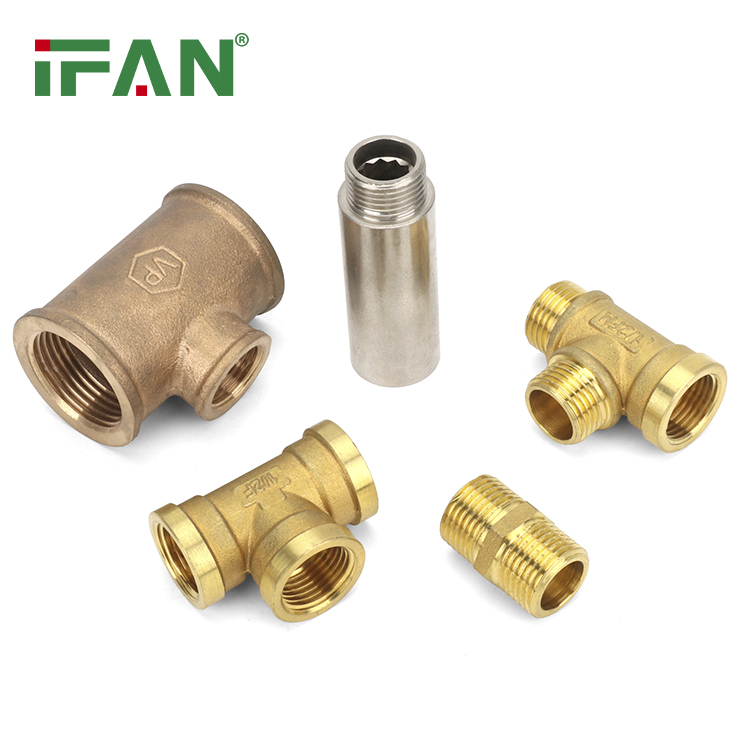
Moreover, brass fittings are typically more forgiving when it comes to installation errors. For instance, they are less likely to crack if slightly over-tightened, compared to other materials like plastic. This helps reduce the risk of leaks and failures during installation, further enhancing the reliability of the system.
6. Compatibility with Other Materials
Brass fittings are highly compatible with a wide range of materials, making them a versatile choice for various systems. Whether connecting copper pipes, steel pipes, or PVC pipes, brass fittings can create strong, reliable connections that maintain their integrity under pressure. This compatibility allows for greater flexibility when designing and installing piping systems.
In addition, brass fittings can be used in systems that require different types of piping, such as water, gas, or industrial fluids. This versatility contributes to the longevity and effectiveness of the entire system, ensuring that the connections are durable and secure.
Why Choose Brass Fittings Over Other Materials?
When it comes to selecting fittings for a piping system, there are several options available, including copper, plastic, and steel. However, brass fittings stand out due to their numerous benefits. Here’s a comparison of brass fittings with other materials:
- Copper Fittings: Copper is a reliable material, but it is more expensive than brass and can be more prone to damage when exposed to high pressures.
- Plastic Fittings: While plastic is cost-effective and lightweight, it is more susceptible to cracking under pressure and extreme temperatures, making it less durable than brass.
- Steel Fittings: Steel fittings are strong but prone to rust and corrosion when exposed to water or chemicals. Brass fittings, on the other hand, offer superior corrosion resistance, making them a better choice for long-term use.
Overall, brass fittings strike the perfect balance between durability, corrosion resistance, and cost-effectiveness, making them the ideal choice for most piping systems.
Conclusion
In summary, brass fittings play a crucial role in ensuring the longevity and reliability of piping systems. Their strength, corrosion resistance, and ability to withstand high temperatures and pressures make them an essential component in plumbing, heating, gas, and industrial systems. By providing leak-proof, durable, and secure connections, brass fittings help ensure that your system remains operational and efficient for years to come.
FAQs
- What are brass fittings made of?
- Brass fittings are made from an alloy of copper and zinc, providing strength, corrosion resistance, and durability.
- Why are brass fittings better than plastic fittings?
- Brass fittings are more durable, corrosion-resistant, and able to handle higher temperatures and pressures compared to plastic fittings.
- How do brass fittings prevent leaks?
- Brass fittings create a secure seal with their strong threads or compression fittings, reducing the risk of leaks in the system.
- Can brass fittings be used with other materials like copper or steel pipes?
- Yes, brass fittings are highly compatible with various materials, including copper, steel, and PVC pipes.
- How long do brass fittings last?
- Brass fittings can last for many years, often decades, without needing replacement, thanks to their durability and corrosion resistance.

